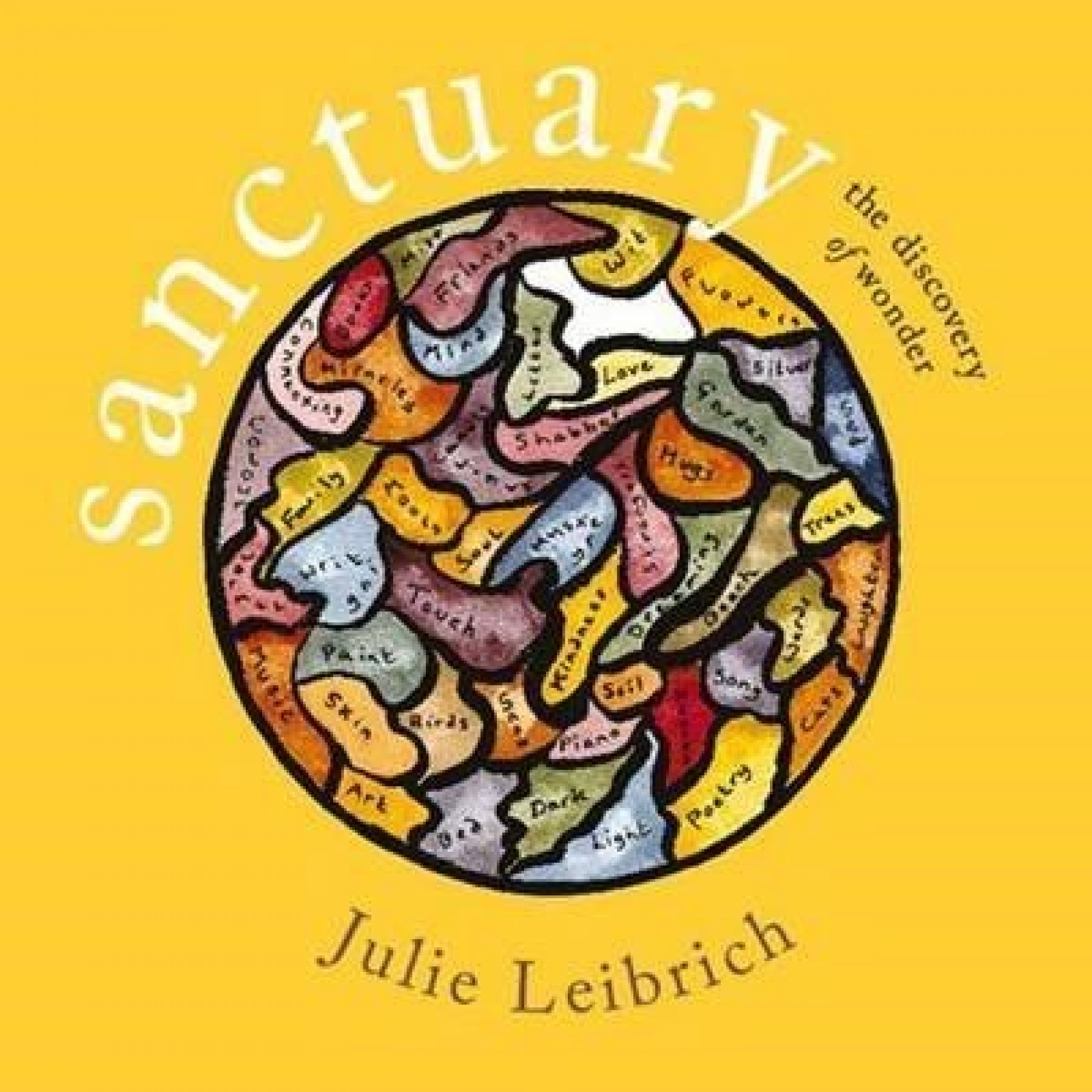“I felt as if I did not belong to myself any longer: I had locked myself out of myself.”
So began Julie Leibrich’s pilgrimage within, to find and cultivate a safe, sacred inner space, and to recover after an overwhelming experience of depression. Finding a way to reconnect with herself and nurture her wellbeing is understood through the idea of sanctuary: “I call it the space within my heart. It’s the place where I meet myself. It’s where I belong. It is where I find a sense of deeper connection – with myself, and with something beyond myself – a spirit greater than myself.”
Sanctuary: The discovery of wonder is an exploration of this spiritual relationship with herself and the world, and how it has supported her to live well. It is part conceptual framework, part spiritual memoir, part poetic contemplation and part self-help guidebook.
Though the book is deeply, generously personal, it’s not at all self-absorbed – the specificity and depth of Leibrich’s individual story illustrate ideas that have broad relevance. In sharing her own path, the author illuminates the way for others travelling similar routes.
The book shares multiple ways into thinking about sanctuary: through poetry, personal stories, structured lists, photographs, journal entries, etymology, metaphor, theory and theology. It dances between styles, like a brain following tangents and making connections around a central idea. Based on personal history and experiences, the book is a profoundly individual reflection on sanctuary, but not exclusively so – it’s woven through with reflections from friends and other writers about how the ideas relate to their own lives. And while Leibrich's own spiritual path has connected with Judaism and a Trappist monastery which has provided physical sanctuary, the book’s lessons are not specific to a religion or spiritual path.
I read the book in an eager rush over a long weekend, but it’s structured so that it can be read slowly and quietly, with time between short chapters for contemplation. Since hurrying through the book a second time, I’ve found myself dipping back into specific sections to revisit ideas or concepts.
The book’s structure offers a poetic and practical framework for creating, protecting and enjoying sanctuary. The introduction explores ideas of sanctuary, and shares some of how Liebrich came to realise the need to have access to quiet inner space. “Illuminating sanctuary” offers clues for connecting with experiences of sanctuary, through finding places to belong, people to love, time for oneself, and connection with mind, body and spirit. “Protecting sanctuary” shares tools for nurturing the sense of sanctuary, through cultivating space, solitude, silence, simplicity, slowness and stillness. The fourth section names some of the treasures that might be found within: mystery, meaning and miracles. Finally, an appendix compiles definitions and experiences of sanctuary shared by Leibrich’s friends.
Sanctuary: The discovery of wonder is generous, beautiful and rich with wisdom. Personally, it left me with a deep craving for quiet (translated the next day into a booking for a silent meditation retreat!) and a strong sense of the value of prioritising my relationship with myself.
Reviewed by Moira Clunie, Service Development Manager at the Mental Health Foundation
I Need Help Now
Help for you or someone important to you
More

